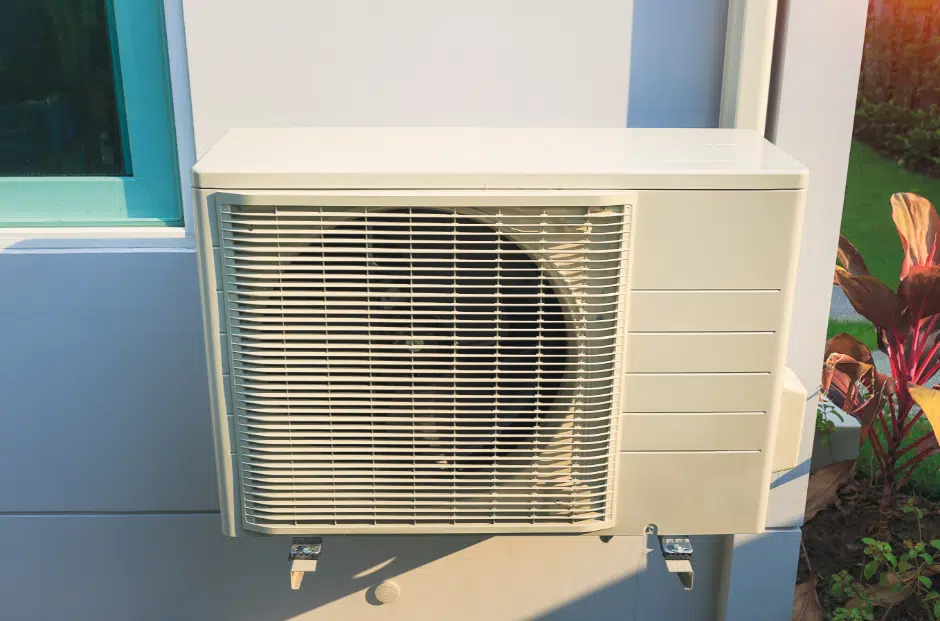Few things can ruin a relaxing day at home like HVAC problems. A malfunctioning air conditioner or furnace not only makes your home uncomfortable but can also cause some health challenges.
However, most common HVAC problems don’t even have to occur in the first place. With regular maintenance of your cooling and heating system, you can avoid at least 90% of those issues and save a whole lot of money.
So, what are the most common HVAC issues you can expect?
1. Clogged AC Filter
At the top of the list is a clogged air filter because it happens too often. The job of an air filter in your AC or furnace is to collect dust and debris, so nothing unwanted gets inside your system. With time, the filter gets too dirty and eventually clogged, making it impossible for air to pass through efficiently.
A clogged air filter can cause a whole lot of other HVAC issues, including frozen evaporator coils, overheating, and a steep electric bill. Depending on how much you use the HVAC unit, you should change the air filter every 30 to 60 days. The HVAC technician will show you how to change it the first time, so you don’t need to call them every time.
2. Malfunctioning Thermostat
The thermostat controls how warm or cool the home is. You can tell your thermostat has issues if you experience the following:
- The HVAC system is not turning on, or it keeps short cycling.
- The thermostat is not responding to changed settings.
- It keeps losing programmed settings.
If the batteries in the thermostat have not been changed in a while, that’s the first thing you should do. If that’s not it, check the settings and the location of the thermostat.
Sometimes you might need to call an HVAC technician to check it out and replace it if necessary.
3. Dirty Condenser Coils
The AC’s condenser coils get rid of the heat removed from your house and expel it outside. However, these coils need to be in tip-top shape to do their job efficiently. When they are dirty and covered in grime, the condenser coils struggle to transfer heat to the outside, increasing the wear and tear of other system components.
This occurs in every HVAC system, but it’s more common if you live in a dusty area or near a factory. It is one of the components that should be cleaned when the technician comes over for that quarterly visit. You can also clean them yourself.
4. Drainage Problems
The HVAC unit works by taking humidity from your home and expelling it to the exterior. The components responsible for this are the drain pan, emergency drain pan, and discharge pipe. Unfortunately, the discharge pipe can get blocked due to mold or debris, making it impossible to pass water.
As a result, the water stays inside and eventually starts overflowing. This is a big HVAC problem that causes an AC’s unexpected shutdown when water flows to electrical components.
You can tell you have a clogged discharge pipe if you see a puddle of water around the AC outdoor unit, filter, or evaporator coil cabinet. To avoid this issue, the drainpipe should be cleaned regularly.
5. Blown Fuses and Tripped Circuit Breakers
The circuit breaker protects the electrical components of the AC from burning by switching everything off in case of a power surge. If your circuit breaker trips, the most probable culprit is an overworking blower.
A blower overworks when there is insufficient airflow in the system, requiring it to compensate to cover the deficit. This often causes the breaker to trip. Poor airflow can be caused by dirty filters, dirty coils, and duct leaks.
Another common issue is a blown fuse between the AC and the thermostat. There is no way to prevent blown fuses, and you will need to buy a new one when it blows.
6. Frozen Evaporator Coils
The evaporator coils have a refrigerant that absorbs heat from your home and effectively gives you cool air. This process depends on a smooth flow of other operations like warm air coming in and condenser coils taking out the heat. If any of these other factors fail, the refrigerant in the evaporator coils gets too cold and starts to freeze.
Interestingly, this is a very common issue to occur right at the pinnacle of summer. In extreme cases, you may find a pile of ice on top of your outdoor unit or notice that the system is no longer cooling your home. The solution to this is to find the cause, whether that is a dirty filter, dirty condenser coils, or whatever else is causing it.
7. Unusual Noises
Both the AC and the furnace make some noise during normal operation. With time, you will get used to the noise and even stop noticing it unless you hear something different.
For example, you may hear the following:
- A whining or squealing noise is an indication that something in the motor is not right.
- Screeching and sharp squealing could also be a fan belt issue in the blower.
- A thwapping sound means something is stuck in the blower’s blades.
- Rattling, clanking, and banging sounds could mean something is breaking or is broken already, especially in the motor or blower.
- A buzzing sound could be a sign of a compressor issue, a leaking refrigerant, or a loose part vibrating.
- Frequent clicking in your HVAC unit could indicate an ignition problem.
- High-pitched whistling or screaming is a dire warning sign that the compressor is failing or has high refrigerant pressure.
- A hissing sound could indicate a refrigerant leak or a leaking air duct.
- A rattling sound coming from the outside could indicate a failing compressor, failing bearings, or a worn-out compressor clutch.
While your system will age and wear out eventually, you can prevent 99% of the above HVAC problems with regular maintenance. Have a trusted HVAC technician come over and check the unit every quarter and clean up some components.
If you suspect any problem before then, don’t hesitate to call the technician back as part of their job is troubleshooting HVAC problems. Between those quarterly visits, keep up with the monthly filter changes and try to clean the condenser coils, evaporator coils, and drain pipe regularly.




